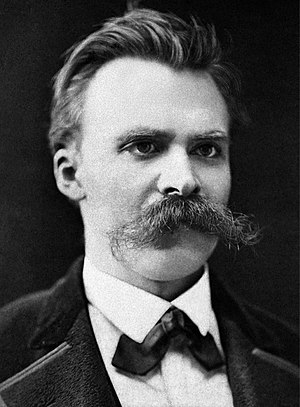
A man far oftener appears to have a decided character from persistently following his temperament than from persistently following his principles.
Share this quote:
That which now calls itself democracy differs from older forms of government solely in that it drives with new horses: the streets are still the same old streets, and the wheels are likewise the same old wheels.
Share this quote:
One is fruitful only at the cost of being rich in contradictions.
Share this quote:
Those who know that they are profound strive for clarity. Those who would like to seem profound to the crowd strive for obscurity.
Share this quote:
Your only problem, perhaps, is that you scream without letting yourself cry.
Share this quote:
After coming into contact with a religious man I always feel I must wash my hands.
Share this quote:
The good life is that which succeeds in existing for the moment, without reference to past or future, without condemnation or selection, in a state of absolute lightness, and in the finished conviction that there is no difference therefore between the instant and eternity.
Share this quote:
Well-meaning, helpful, good-natured attitudes of mind have not come to be honored on account of their usefulness, but because they are states of richer souls that are capable of bestowing and have their value in the feeling of the plenitude of life.
Share this quote:
[The] self overcoming of justice: one knows the beautiful name it has given itself--mercy...
Share this quote:
Objection, evasion, joyous distrust, and love of irony are signs of health; everything absolute belongs to pathology.
Share this quote:
At bottom every man knows well enough that he is a unique being, only once on this earth; and by no extraordinary chance will such a marvelously picturesque piece of diversity in unity as he is, ever be put together a second time.
Share this quote:
Species do not grow more perfect: the weaker dominate the strong again and again - the reason being they are the great majority, and they are also cleverer.... Darwin forgot the mind (- that in English): the weak possess more mind. ... To acquire mind one must need mind - one loses it when one no longer needs it. He who possesses strength divests himself of mind.
Share this quote:
Once upon a time, in some out of the way corner of that universe which is dispersed into numberless twinkling solar systems, there was a star upon which clever beasts invented knowing. That was the most arrogant and mendacious minute of world history, but nevertheless, it was only a minute. After nature had drawn a few breaths, the star cooled and congealed, and the clever beasts had to die. One might invent such a fable, and yet he still would not have adequately illustrated how miserable, how shadowy and transient, how aimless and arbitrary the human intellect looks within nature. There were eternities during which it did not exist. And when it is all over with the human intellect, nothing will have happened.
Share this quote:
When we observe how some people know how to manage their experiences--their insignificant, everyday experiences--so that they become an arable soil that bears fruit three times a year, while others--and how many there are!--are driven through surging waves of destiny, the most multifarious currents of the times and the nations, and yet always remain on top, bobbing like a cork, then we are in the end tempted to divide mankind into a minority (a minimality) of those who know how to make much of little, and a majority of those who know how to make little of much.
Share this quote:
When the gratitude of many to one throws away all shame, we behold fame.
Share this quote:
When the gratitude that many owe to one discards all modesty, then there is fame.
Share this quote:
A: But why this solitude? - B: I am not at odds with anyone. But when I am alone I seem to see my friends in a clearer and fairer light than when I am with them; and when I loved and appreciated music the most, I lived far from it. It seems I need a distant perspective if I am to think well of things.
Share this quote:
There is only a perspective seeing, only a perspective knowing; and the more affects we allow to speak about one thing, the more eyes, different eyes, we can use to observe one thing, the more complete will our concept of this thing, our objectivity, be.
Share this quote:
The solitary speaks.One receives as a reward for much ennui , ill-humour and boredom, such as a solitude without friends, books, duties or passions must entail, one harvests those quarters of an hour of the deepest immersion in oneself and nature. He who completely entrenches himself against boredom also entrenches himself against himself: he will never get to drink the most potent refreshing draught from the deepest well of his own being.
Share this quote:
The person who fights monsters should make sure that in the process, he does not become a monster himself. Because when you stare down at an abyss, the abyss stares back at you.
Share this quote: